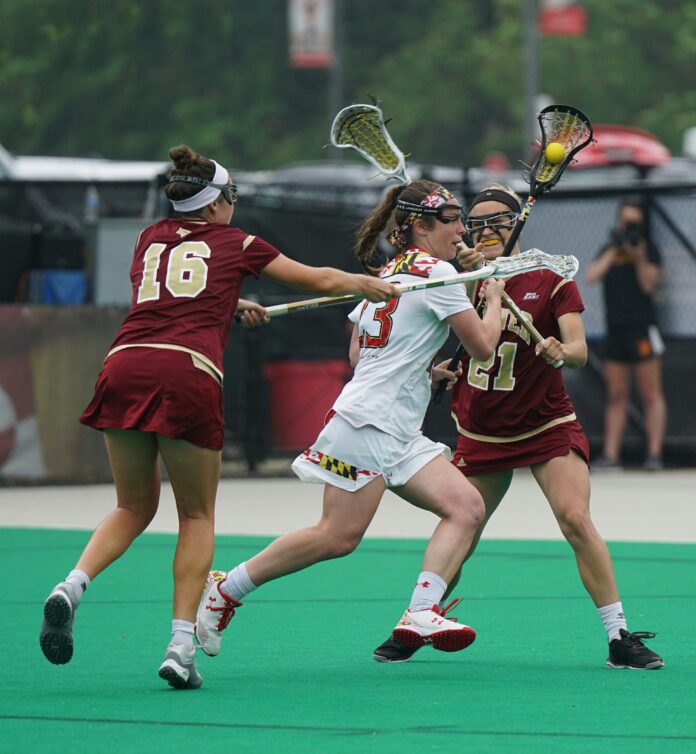Introduction
En tant qu’agent de football, votre rôle est crucial pour naviguer dans le paysage complexe du football au nom de vos clients. Cependant, le chemin vers le succès en tant qu’agent est semé d’embûches potentielles. Un comportement non professionnel peut ternir votre réputation et vos relations, souvent de manière irréversible. Dans ce blog, nous fournissons un guide complet sur les cinq choses à ne pas faire en tant qu’agent de football, en soulignant l’importance du professionnalisme pour maintenir une solide réputation, construire des réseaux durables et servir efficacement vos clients.
Ne pas agir de manière non professionnelle
Dans le football, la réputation est tout; c’est la monnaie qui sous-tend votre carrière en tant qu’agent. Construire une solide réputation prend des années de comportement professionnel constant, et cela peut être détruit en quelques minutes par une conduite non professionnelle. En tant qu’agent, chacune de vos actions est scrutée non seulement par vos clients, mais aussi par les clubs, les autres agents et la communauté du football au sens large. Cette surveillance constante signifie que tout écart de professionnalisme, comme manquer des réunions importantes, ne pas respecter ses engagements ou afficher un comportement inapproprié, peut gravement nuire à votre crédibilité. Manquer une réunion prévue peut être perçu comme un manque de respect et de fiabilité, tandis que ne pas honorer ses engagements reflète mal votre dépendabilité. Un comportement inapproprié, que ce soit en public ou en privé, peut rapidement se répandre dans la communauté étroite du football, conduisant à une réputation ternie qu’il est difficile de restaurer.
Le football est une industrie profondément ancrée dans les relations, où la confiance et le respect sont les pierres angulaires de tout réseau réussi. La nature interconnectée de cette industrie signifie qu’agir de manière non professionnelle peut rapidement brûler des ponts avec les clubs, les joueurs et les autres agents. Les informations circulent rapidement dans le monde du football; une seule instance de comportement non éthique ou de manque de fiabilité peut fermer des portes à de futures opportunités, car ceux de l’industrie partagent souvent des informations sur les individus peu fiables. Par conséquent, il est crucial de toujours s’efforcer de se conduire avec la plus grande intégrité, fiabilité et professionnalisme dans chaque interaction. Construire et entretenir des relations nécessite un effort constant et un engagement authentique à maintenir des normes éthiques élevées. Cela signifie être ponctuel, honorer ses engagements et traiter tout le monde avec respect. En agissant ainsi, non seulement vous construisez un réseau solide, mais vous assurez également que votre réputation reste intacte, vous permettant de prospérer dans le monde hautement compétitif du football.
Ne pas se prioriser au détriment de ses clients
L’un des principes fondamentaux d’être un agent de football est de s’assurer que vos clients passent toujours en premier. Cela signifie que le succès et la satisfaction de vos clients doivent être au premier plan de chaque décision que vous prenez. Prioriser vos propres intérêts plutôt que ceux de vos clients peut entraîner des conflits importants et éroder la confiance qui est essentielle pour maintenir une relation professionnelle solide. Une approche centrée sur le client n’est pas seulement une stratégie recommandée; c’est une nécessité. Chaque action et décision doit être prise dans le but principal de faire progresser les aspirations de carrière de votre client, d’améliorer son bien-être et de garantir sa satisfaction globale avec les services que vous fournissez. Cette approche construit une base de confiance et de loyauté, qui est inestimable dans le monde hautement compétitif du football.
Il est impératif qu’en tant qu’agent, vous ne mentionniez jamais les frais d’agence avant d’avoir discuté et convenu de tout ce qui concerne la carrière de joueur de votre client. La priorité doit toujours être de sécuriser les meilleures conditions possibles pour votre client, y compris sa rémunération, ses opportunités de jeu et ses perspectives de développement de carrière. Discuter des frais d’agence prématurément peut donner l’impression que votre principal souci est votre propre gain financier plutôt que les intérêts de votre client. Cela peut miner la confiance que votre client a en vous et potentiellement compromettre la relation. S’assurer que tous les aspects du contrat du joueur et du développement de sa carrière sont réglés avant de mentionner les frais d’agence démontre votre engagement envers son succès et renforce l’idée que ses intérêts sont votre priorité absolue.
De plus, lors des négociations avec les clubs, il est crucial de ne jamais choisir un club en fonction de celui qui offre les frais d’agence les plus élevés. Bien que des frais plus élevés puissent être tentants, ils ne doivent jamais dicter vos décisions. La carrière et la croissance personnelle de votre client doivent toujours passer en premier. Sélectionner un club uniquement en fonction des avantages financiers qu’il vous offre en tant qu’agent peut conduire à des situations où le joueur se retrouve dans un environnement qui n’est pas propice à son développement ou à son bien-être. Par exemple, un club offrant des frais d’agence plus élevés peut ne pas fournir les meilleures opportunités de jeu, le système de soutien ou la progression de carrière pour votre client. Cette approche à court terme peut nuire à la carrière du joueur et, à long terme, nuire à votre réputation en tant qu’agent qui privilégie l’argent au bien-être de ses clients.
Dans chaque processus de négociation et de prise de décision, le bien-être de votre client doit être le principe directeur. Cela signifie rechercher et comprendre en profondeur l’environnement de chaque club, le personnel d’encadrement, le style de jeu et les programmes de développement pour s’assurer qu’ils correspondent aux besoins et aspirations de votre client. Engagez des discussions ouvertes et honnêtes avec vos clients sur leurs objectifs et préférences, et utilisez ces informations pour guider vos négociations. Votre rôle est de plaider pour les meilleurs intérêts de votre client, en veillant à ce qu’il soit placé dans une situation où il peut prospérer tant professionnellement que personnellement.
En adoptant constamment une approche centrée sur le client, vous vous construisez une réputation d’agent fiable et dévoué. Cette approche non seulement aide à retenir les clients actuels, mais attire également de nouveaux, car les joueurs et leurs familles recherchent des agents qui se soucient réellement de leur bien-être et de leur succès professionnel. Au fil du temps, cette réputation d’intégrité et de réflexion centrée sur le client devient l’un de vos atouts les plus précieux, vous distinguant dans l’industrie compétitive des agents de football.
Ne pas offrir de pots-de-vin ou de commissions non éthiques
Maintenir l’intégrité dans l’acquisition de clients est primordial pour respecter les normes éthiques de la profession d’agent de football. Offrir de l’argent ou des cadeaux comme pots-de-vin aux joueurs ou à leurs familles pour les obtenir comme clients est une violation flagrante de ces normes. De telles pratiques non éthiques sapent non seulement l’intégrité de la profession, mais exposent également vos clients à des risques importants, y compris des sanctions potentielles et des dommages à leur réputation. S’engager dans des pots-de-vin peut sembler être un raccourci pour obtenir des clients, mais c’est une tactique à court terme pleine de conséquences à long terme. Des actions en justice peuvent être intentées contre les agents qui recourent aux pots-de-vin, entraînant de lourdes pénalités, y compris des amendes et la perte de votre licence. De plus, une réputation endommagée peut avoir des implications considérables, rendant difficile l’attraction de nouveaux clients et le maintien de relations avec les clients existants. Par conséquent, il est crucial de respecter les lignes directrices éthiques et d’éviter toute forme de pots-de-vin dans l’acquisition de clients.
Maintenir des normes éthiques ne se limite pas à éviter les pots-de-vin; cela implique également de s’abstenir d’offrir des commissions non éthiques aux clubs ou aux clients. De telles pratiques compromettent votre intégrité et érodent la confiance qui est fondamentale pour des relations professionnelles réussies. La transparence et l’honnêteté doivent être les pierres angulaires de vos relations avec toutes les parties impliquées, des joueurs et de leurs familles aux clubs et aux autres agents. S’engager dans des pratiques équitables et transparentes reflète positivement sur vous et maintient les normes de l’industrie. Construire des relations basées sur la confiance nécessite un engagement envers un comportement éthique et une concentration sur le succès à long terme plutôt que sur les gains à court terme. Les incitations non éthiques peuvent offrir des avantages immédiats, mais elles sapent les fondations de la confiance et du respect nécessaires pour une croissance professionnelle durable.
Pour cultiver des relations basées sur la confiance, privilégiez une communication ouverte et honnête. Énoncez clairement vos services, vos frais et la valeur que vous apportez sans recourir à des tactiques non éthiques. En étant transparent sur vos pratiques et en maintenant des normes éthiques élevées, vous pouvez construire une réputation d’agent fiable et crédible. Cette approche non seulement améliore votre crédibilité mais attire également des clients qui apprécient l’intégrité et le professionnalisme. De plus, maintenir des normes éthiques contribue à une image positive de la profession d’agent de football dans son ensemble, favorisant un environnement où la concurrence équitable et le respect mutuel prospèrent.
Ne pas être mal préparé
La préparation est un élément crucial dans le rôle d’un agent de football, et l’une des façons les plus rapides de perdre en crédibilité est d’entrer dans des négociations ou des opportunités sans préparation. En tant qu’agent, vous êtes constamment jugé sur la façon dont vous vous présentez et sur votre profondeur de connaissance de l’industrie. Une préparation minutieuse est une démonstration claire de votre engagement, de votre expertise et de votre professionnalisme. Elle montre que vous prenez vos responsabilités au sérieux et que vous êtes dédié à obtenir les meilleurs résultats possibles pour vos clients. Être mal préparé peut entraîner des erreurs, des malentendus et des opportunités manquées, ce qui peut nuire considérablement à votre réputation et à votre efficacité.
Dans l’industrie du football, la connaissance est le pouvoir. Pour être un défenseur efficace de vos clients, vous devez bien maîtriser les détails de toute affaire, comprendre pleinement les besoins et les aspirations de vos clients, ainsi que la dynamique des clubs impliqués. Cela signifie mener des recherches approfondies, rassembler toutes les informations pertinentes et rester à jour sur les tendances et développements de l’industrie. Anticiper les défis potentiels et développer des stratégies pour les surmonter est également un aspect crucial de la préparation. Cette approche proactive vous permet de traiter les problèmes avant qu’ils ne deviennent des problèmes et de négocier à partir d’une position de force.
Plus vous êtes préparé, mieux vous pouvez défendre vos clients et obtenir des résultats favorables. La préparation implique non seulement de comprendre les aspects financiers d’une affaire, mais aussi de considérer les perspectives de carrière à long terme et le bien-être personnel de vos clients. Cette approche holistique garantit que vous prenez des décisions qui sont alignées avec les meilleurs intérêts de vos clients. De plus, être bien préparé vous permet de vous présenter avec confiance lors des négociations, ce qui peut conduire à des résultats plus réussis et à des relations plus solides avec les clubs et les autres parties prenantes.
Ne pas enfreindre les règlements de la FIFA ou des associations nationales
Se conformer aux règlements de la FIFA est primordial pour tout agent de football. Ces règlements couvrent divers aspects de la conduite d’un agent, y compris, mais sans s’y limiter, les limites d’âge pour approcher les jeunes joueurs. Par exemple, approcher des mineurs en dessous de l’âge permis par ces règlements ne viole pas seulement les lignes directrices éthiques, mais aussi les limites légales. De telles infractions peuvent entraîner de lourdes sanctions, y compris la perte de votre licence d’agent, des amendes substantielles et une atteinte significative à votre réputation professionnelle. La conformité aux règlements de la FIFA est non négociable, car elle garantit que vous opérez dans un cadre légal et maintenez l’intégrité de votre pratique.
En plus de la FIFA, souvent l’association nationale avec laquelle l’agent est enregistré dans son pays de résidence, comme la FA anglaise, aura son propre ensemble de règlements indépendants qui peuvent différer dans une certaine mesure des règlements de la FIFA. Cela est particulièrement vrai dans des pays comme l’Espagne, l’Italie, l’Allemagne et la France. Cela est souvent causé par les gouvernements nationaux ayant des règlements contradictoires avec ceux que la FIFA entend mettre en œuvre pour les agents, car les lois nationales priment sur la gouvernance de la FIFA. En tant qu’agent, vous devez comprendre quelles règles et lois s’appliquent à vous, et la ligne de fond est qu’elles ne doivent pas être enfreintes !
Au-delà des implications légales, il y a des considérations éthiques substantielles liées à l’adhésion à ces règlements. Les jeunes joueurs, par exemple, sont particulièrement vulnérables et leurs intérêts doivent être protégés. Les approcher prématurément peut perturber leur développement et imposer une pression excessive sur eux et leurs familles. S’assurer que vos méthodes et votre timing sont à la fois légaux et éthiques démontre le respect des limites établies par les organismes de réglementation et le bien-être des joueurs. Il est essentiel d’adopter une approche holistique qui priorise le développement et la croissance personnelle des jeunes athlètes, en respectant strictement les règlements conçus pour les protéger.
Maintenir des normes éthiques implique plus que simplement éviter les actions illégales; cela nécessite un engagement à faire ce qui est juste, même lorsque cela pourrait ne pas être le chemin le plus facile ou le plus financièrement gratifiant. En respectant les règlements de la FIFA et des associations nationales et les considérations éthiques qu’ils incarnent, vous protégez non seulement vos clients, mais vous maintenez également l’intégrité de la profession. Cet engagement envers un comportement éthique favorise la confiance et le respect parmi les joueurs, les clubs et les autres parties prenantes de la communauté du football, renforçant ainsi votre réputation en tant qu’agent responsable et digne de confiance.
Conclusion
N’oubliez pas, être un agent de football est une carrière exigeante mais gratifiante. La clé du succès à long terme réside dans le maintien du professionnalisme, des normes éthiques et d’une approche centrée sur le client. En évitant les pièges énoncés ci-dessus, vous pouvez construire une solide réputation, favoriser des relations solides et garantir les meilleurs résultats pour vos clients. Rappelez-vous, vos actions d’aujourd’hui posent les bases de votre avenir dans l’industrie. Conduisez-vous avec intégrité, préparez-vous diligemment et priorisez toujours les intérêts de vos clients. En faisant cela, vous aurez probablement un grand succès en tant qu’agent dans le monde passionnant du football !














